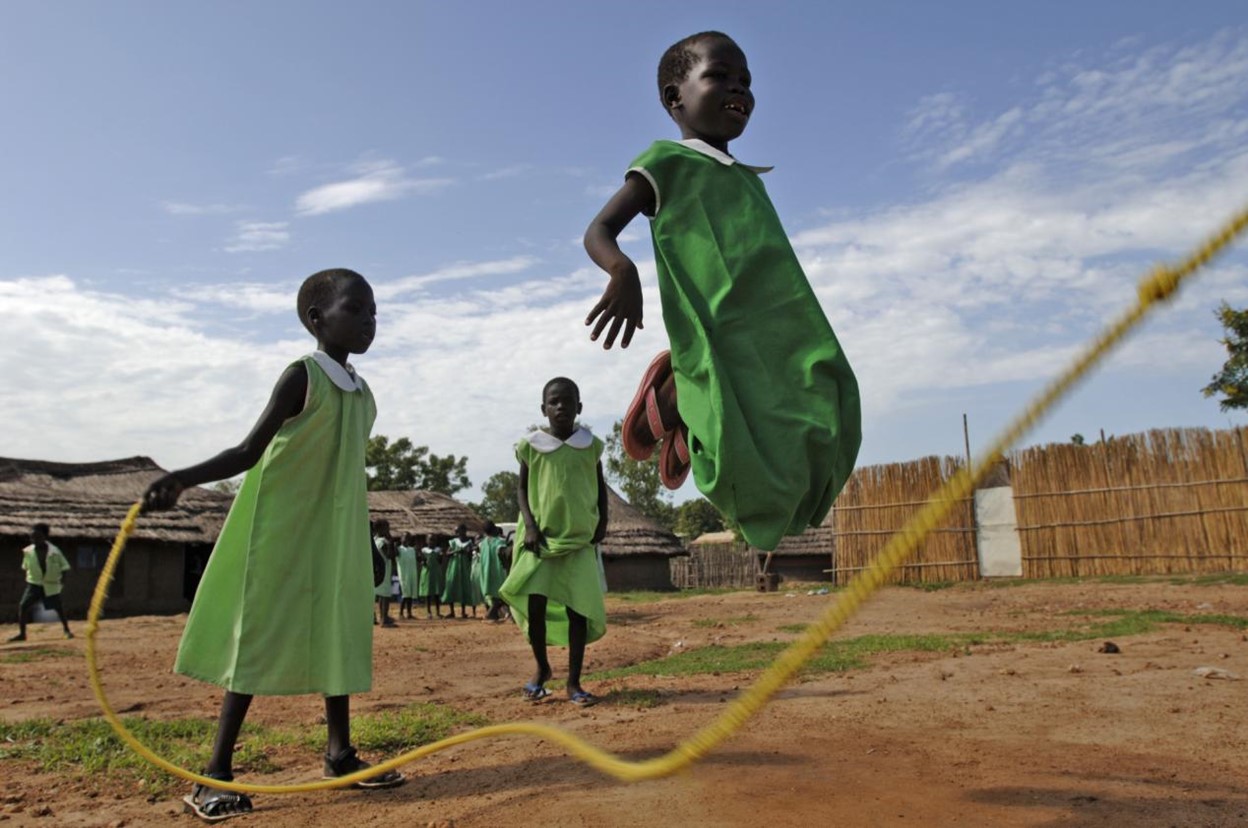our work
For 50 years, we have brought together faith
communities to take action together for peace.
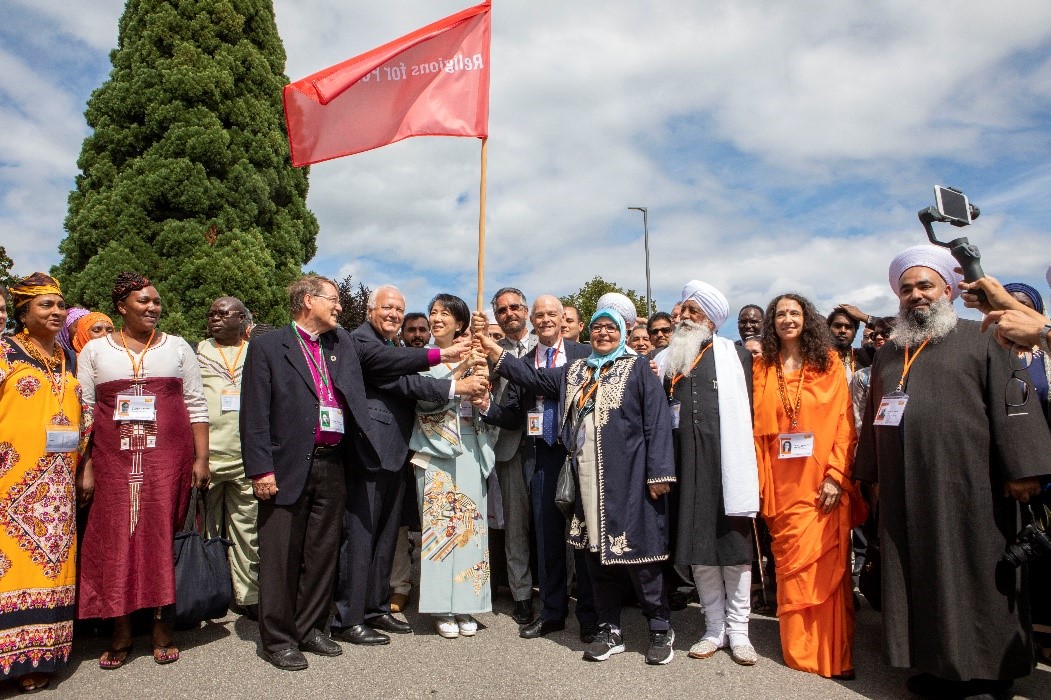
Ten World Assemblies
Every five to seven years, Religions for Peace convenes a World Assembly to bring together faith leaders with government and civil society partners to forge a consensus on global priorities for peace and elect new leadership.
Previous World Assemblies have taken place in 2019 (Lindau, Germany), 2013 (Vienna, Austria), 2006 (Kyoto, Japan), 1999 (Amman, Jordan), 1994 (The Vatican, Italy), 1989 (Melbourne, Australia), 1984 (Nairobi, Kenya), 1979 (Princeton, United States), 1974 (Leuven, Belgium), and 1970 (Kyoto, Japan).
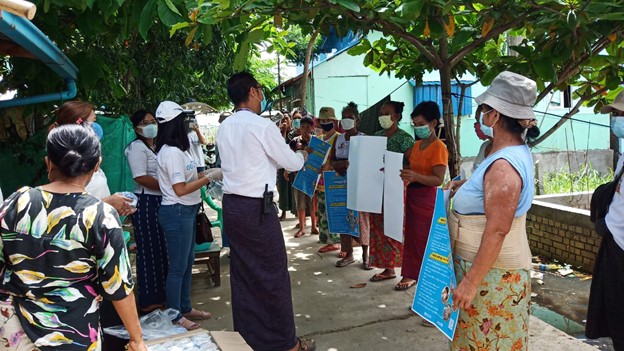
Facilitating Global Interfaith Responses to the World’s Most Urgent Challenges
Faith leaders and communities have served on the frontlines of every major challenge the world has ever faced – Religions for Peace brings this expertise and commitment together for interfaith solutions that include government, civil society, and all other stakeholders. From COVID-19 and HIV/AIDs to peace negotiations and creating open space for dialogue in some of the most challenging contexts, our movement sees the world’s challenges as an opportunity to build back stronger together.
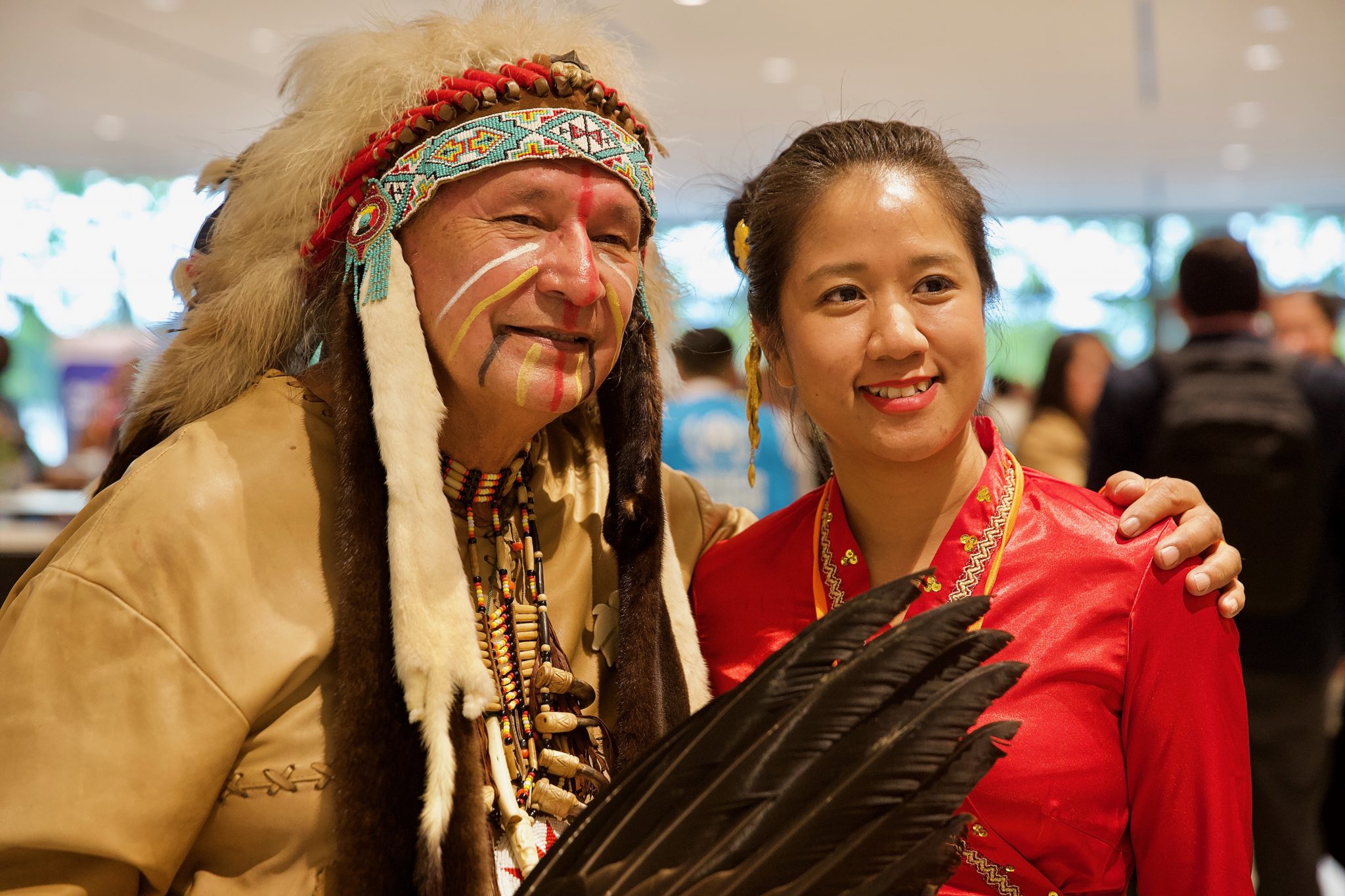
90 National and 6 Regional Interreligious Councils
Our Interreligious Councils (IRCs) are the primary mechanism we use to bring faiths together across the world. Sometimes, IRCs are built in response to devastating crises, such as the Bosnia war, Sierra Leone Civil War, or the HIV/AIDS epidemic. This unity during crisis fosters trust and cooperation that lasts for decades to come.
The History of Religions for Peace
1st Assembly on Women, Faith, and Diplomacy
From 10-13 November 2020, thousands of representatives from the world’s religions gathered virtually with leaders of governments, civil society, and multilateral institutions for the 1st Assembly on Women, Faith, and Diplomacy.
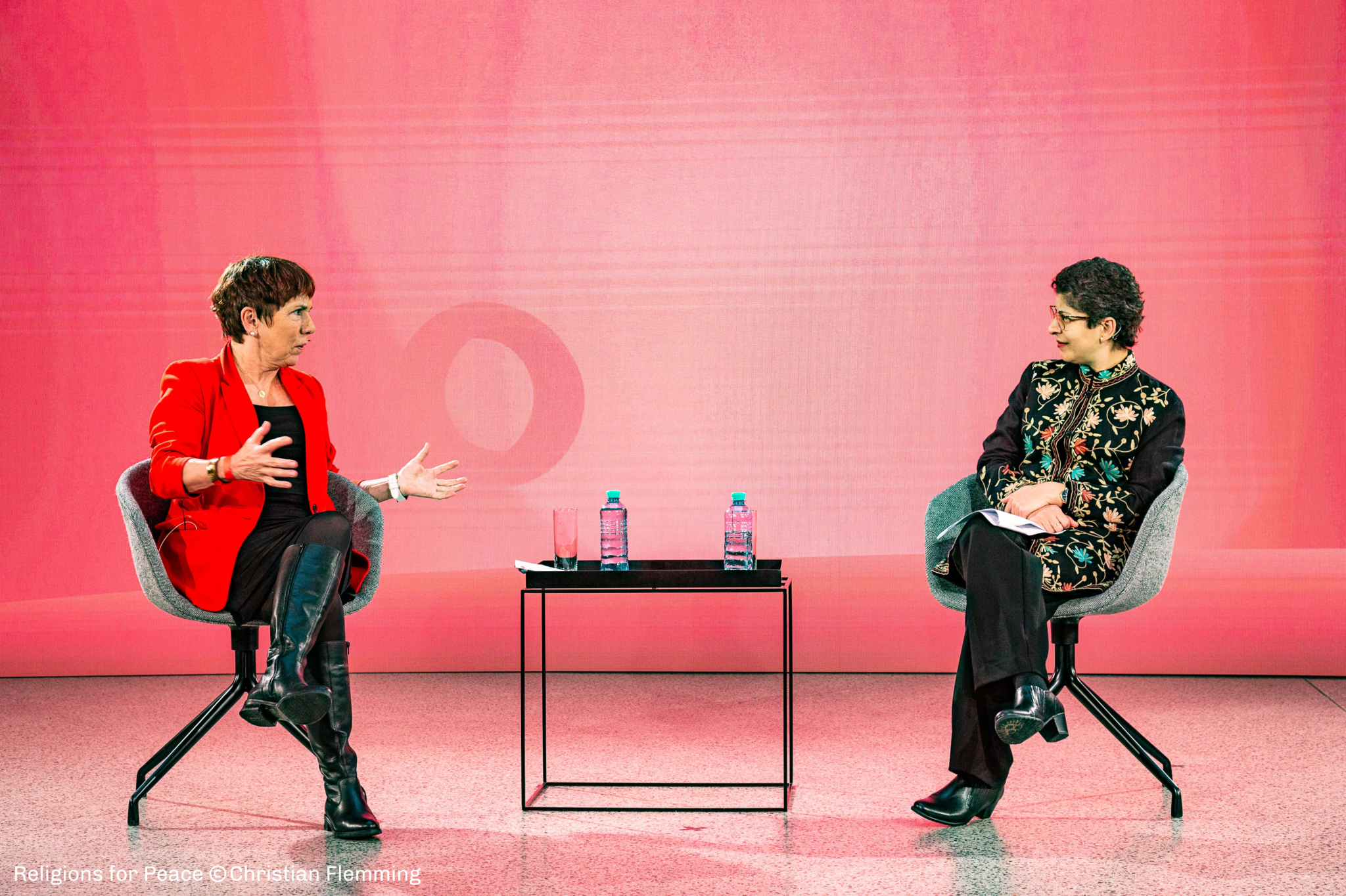
Prof. Dr. Azza Karam elected as Secretary General by the 10th World Assembly
The 10th World Assembly convened over 1,000 women, men and youth from 125 countries in partnership with Ring for Peace and generously supported by the German Federal Foreign Office and Bavarian State Ministry in Lindau, Germany.
With continued calls for greater female leadership, Prof. Dr. Azza Karam was joyously affirmed by the World Assembly as the new Secretary General. She follows Dr. William F. Vendley, who served as Secretary General for 27 years.
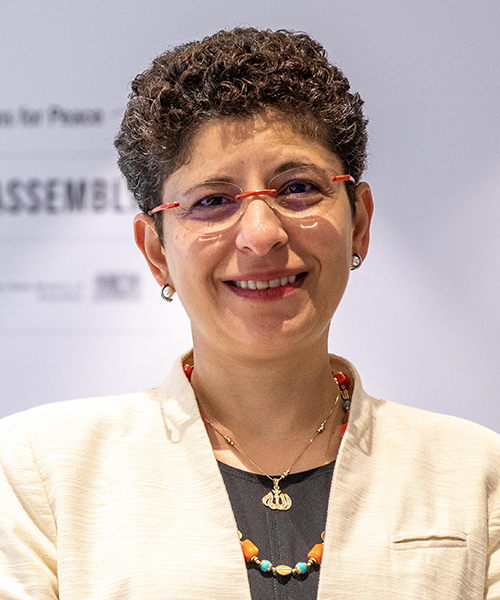
Faith and Positive Change for Children – Global Initiative on Social and Behavior Change
Religions for Peace and UNICEF held a global workshop in Bangkok, Thailand in July 2018 to spearhead the Faith and Positive Change for Children (FPCC) joint initiative in partnership with Joint Learning Initiative (JLI) and Rissho Kosei-Kai (RKK). The initiative will develop UNICEF’s systematic and at-scale engagement with religious communities and actors to influence positive social and behavior change towards improving lives of children and families, particularly the most marginalized.
The global partnership for FPCC was officially launched in Washington, D.C. in October 2019 by UNICEF Executive Director, Henrietta H. Fore and RfP Co-President, Imam Mohamed Magid.
In response to the COVID-19 outbreak, the partnership was adapted to launch a global Multi-religious Faith-in-Action COVID-19 Campaign in order to involve religious leaders in prevention and assisting program connected with the worldwide COVID-19 crisis.
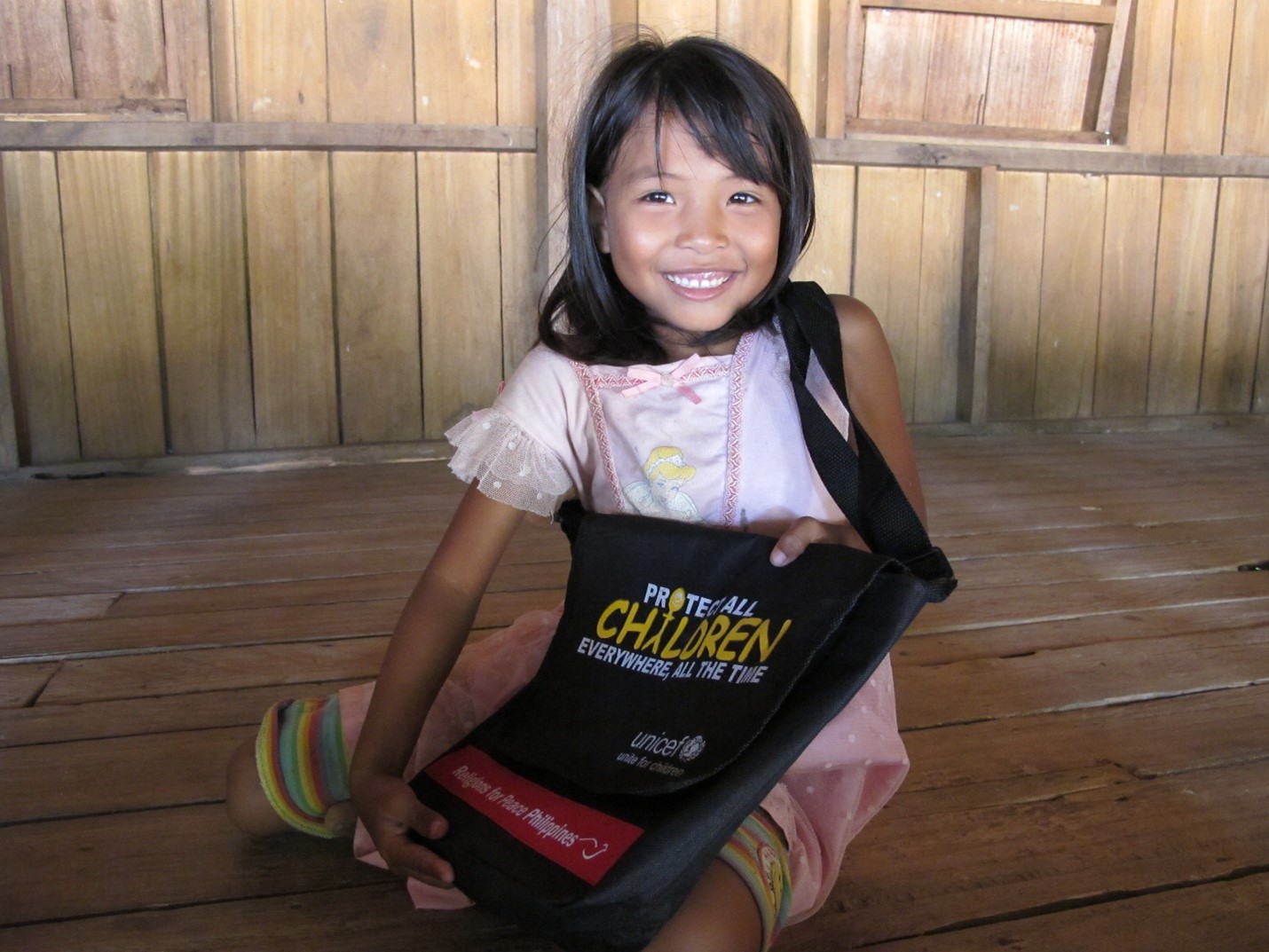
“Ten Promises to Our Children” Initiative
Religions for Peace launched “Ten Promises to Our Children,” a global initiative to improve child survival. This initiative empowers religious communities to teach and promote life-saving practices, such as breastfeeding and immunizations, to prevent children from dying of preventable diseases. These ten behaviors, within the control of families and communities, are endorsed by UNICEF and other development agencies. Over 200 diverse religious leaders and more than 60 global faith-based organizations have committed to adopting and promoting these ten behaviors. They are vital to saving the lives of children and reducing the burden of disease.

Setting The Global Agenda For Peace: Launch Of The 2020-2025 Strategic Plan
The global movement launches its 2020-2025 Strategic Plan, identifying and committing to six strategic goals to advance multi-religious collaborative action for peace: Peaceful, Just and Inclusive Societies; Gender Equality; Environment; Freedom of Thought, Conscience and Religion; Interreligious Education; and Global Partnerships. This plan is the culmination of sustained multi-religious and multi-stakeholder debate and consensus-building for over a year.
For more information: 10th World Assembly and Multi-religious and Multi-stakeholder Partnership for Peace and Development
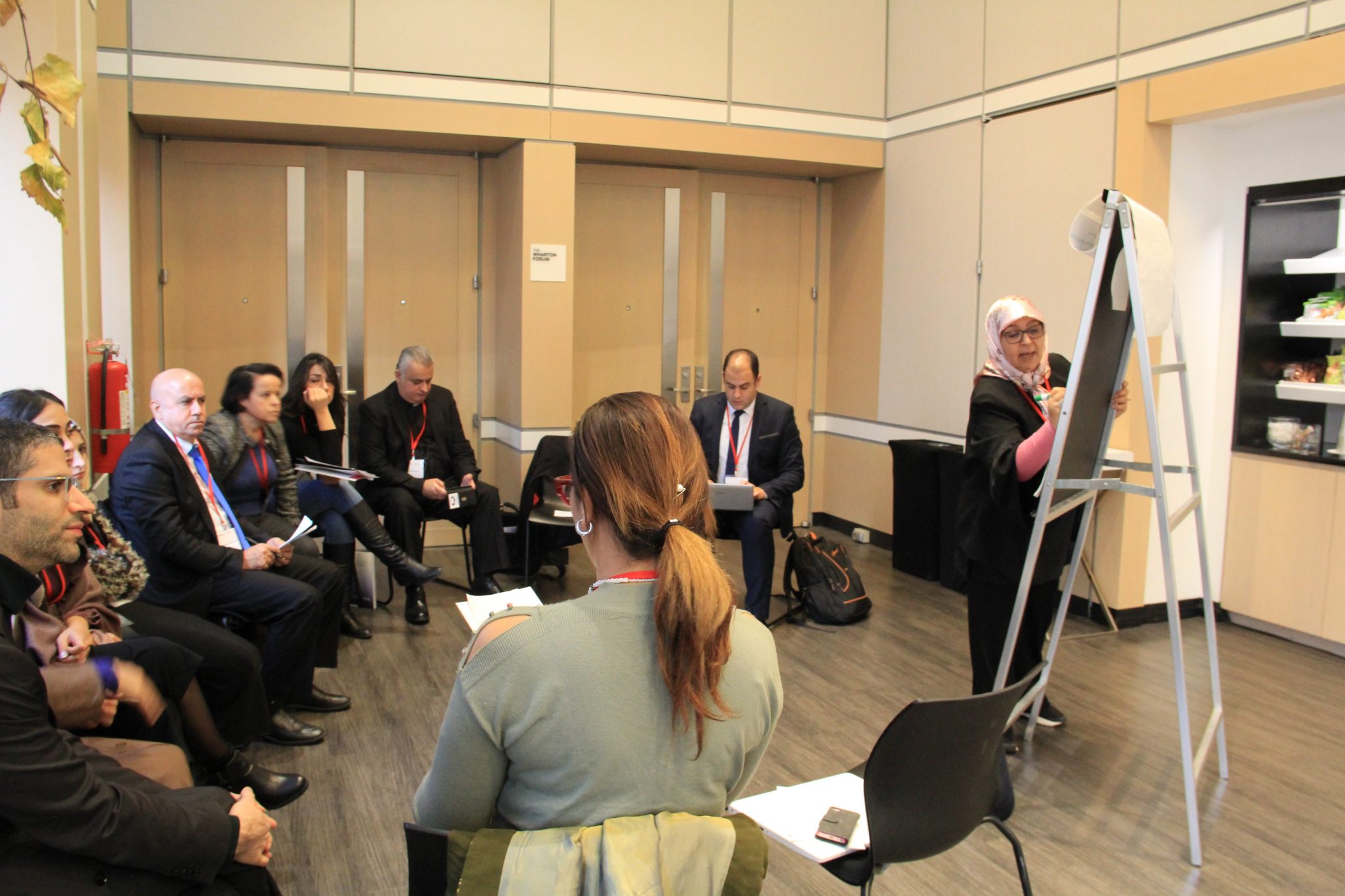
#UnitedByHope: A Multi-religious Response To COVID-19
In response to unprecedented global challenge of Covid-19, and in acknowledgment of the work undertaken by religious communities and organisations around the world, Religions for Peace, launched the Multi-religious Humanitarian Fund. The fund is enabled through the contributions of the GHR Foundation and Fetzer Institute and will provide seed grants to RfP’s Interreligious Councils to support multi-religious collaboration in the face of humanitarian challenges, which are expected to continue to define the next two decades.
Meanwhile, the Fund is established to honour RfP institutional and experiential learning over the past 5 decades: the ability to work together during humanitarian crises is possible thanks to a legacy of trust and collaboration established before a humanitarian crisis. In turn, collaborative work during a humanitarian crisis supports and consolidates the bridge building and partnership needed between and among religious actors post the particular crisis.
Equipping local communities in Syria
RfP initiated 30 different small projects in Syria. Despite the highly unpredictable character of the situation within the country, RfP worked to equip local communities and networks in six locations within Syria as channels for delivery and service. Through the provision of strategic and targeted humanitarian assistance to vulnerable internally displaced people, particularly women and children, RfP was able to provide services to 7,000 Syrians and their families and work towards performing symbolic restorative acts of healing, communal reconciliation and solidarity.
Working with the Greek Orthodox Church in Hims, RfP supported the Center of Peace for Children where children (7-12 years old) from multi-religious and multiethnic backgrounds (Sunni Muslims, Orthodox Christians and Alawites) not only had opportunities to study and play together, but also to learn about one another. They were also provided with the much-needed nutritional support, medical services and health and hygiene care. Starting with just 20 children, CPC provided services to over 100 children and their families every month.
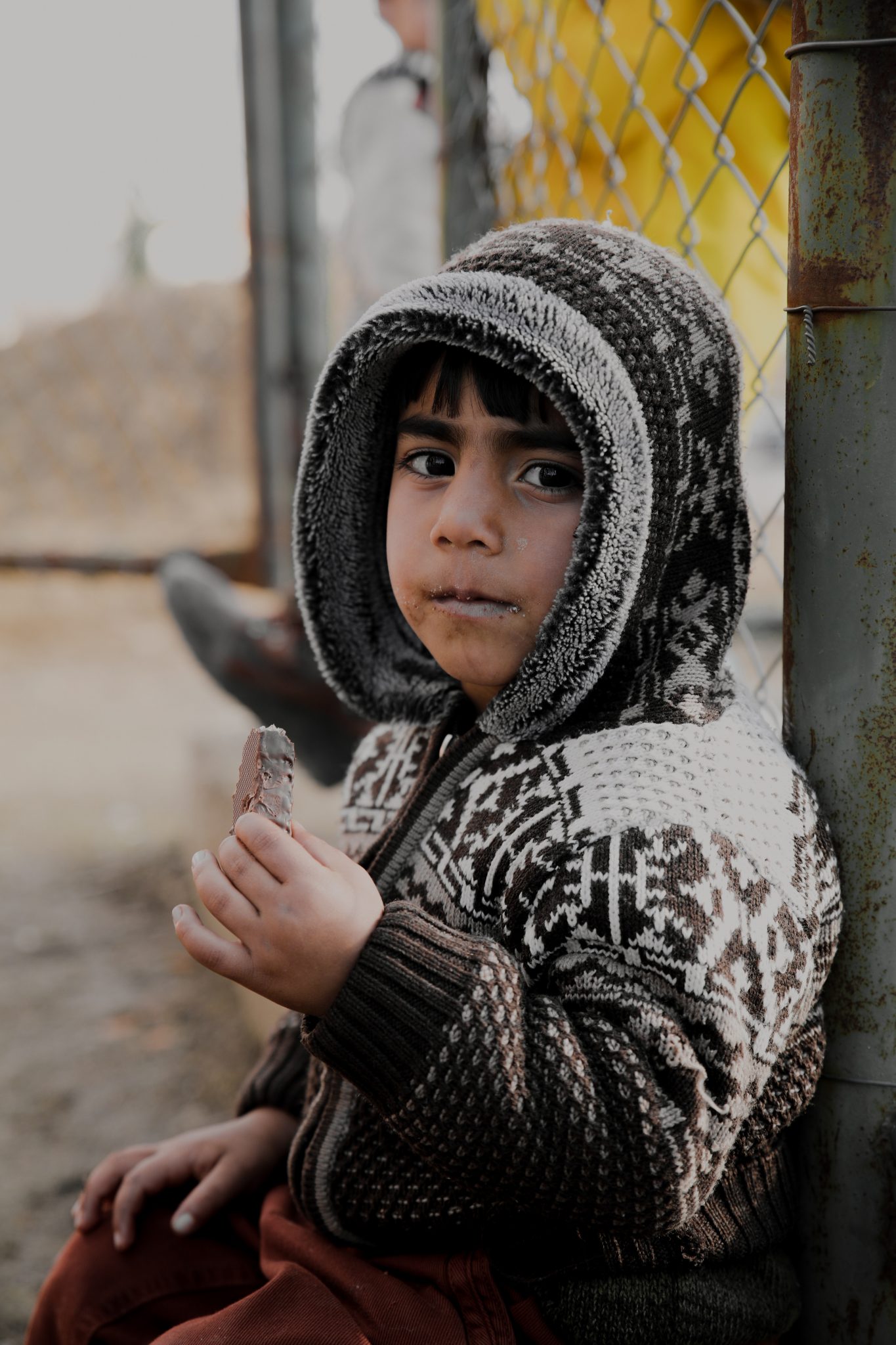
Roosevelt Foundation names Religions for Peace 2020 Freedom of Worship Award Laureate
The Roosevelt Foundation has recognized Religions for Peace with the award for Freedom of Worship, uplifting RfP’s determined commitment to promote peace, particularly its efforts championing the rights to freedom of thought, conscience and religion.

Advisory Forum on National Reconciliation and Peace in Myanmar
The RfP Advisory Forum on National Reconciliation and Peace in Myanmar is a multi-religious and multi-stakeholder mechanism that has garnered the support of Aung Sun Suu Kyi and over 20 foreign governments. The Advisory Forum creates an “open space” for all sectors in Myanmar—governmental, military, ethnic groups, civil society and religious groups—to earnestly seek together a common path for peace.
The Advisory Forum is a platform through which stakeholders engage in free and open dialogue to address concrete challenges and is the only mechanism that connects the highest level of Myanmar leadership with grassroots initiatives for dialogue and collaboration.
For more information: Press Releases from a Multi-religious Delegation Delivering the “Letter to the Peoples of Myanmar”; Multi-religious Delegation’s Visit to Rakhine State; the first, second, and third Advisory Forums; Joint Statement from RfP Myanmar and RfP Bangladesh after Track II Consultations during the 10th World Assembly. Stay updated with RfP– Myanmar’s work advancing peace on their Facebook page and website.
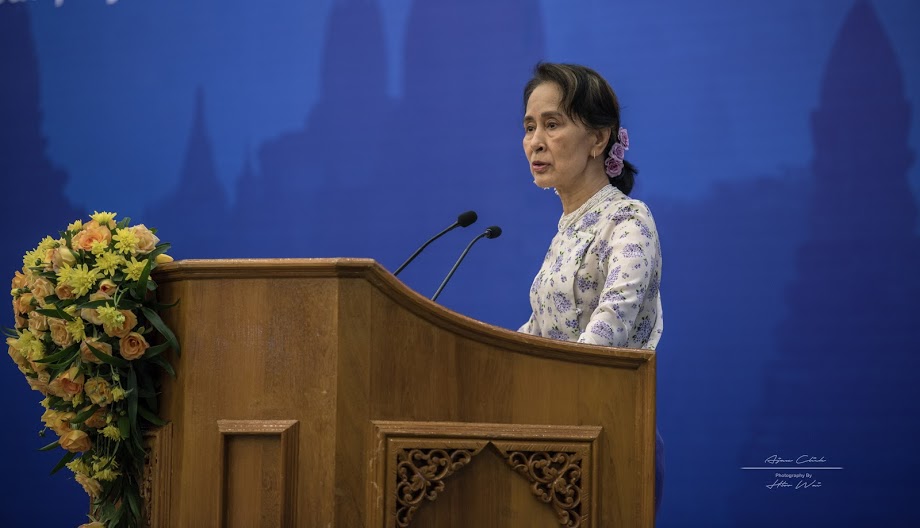
Bringing moral urgency and spiritual resources end tropical deforestation
RfP is a core implementing partner of the Interfaith Rainforest Initiative (IRI), an international, multi-faith alliance that aims to bring moral urgency and spiritual resources to global efforts to end tropical deforestation. It is a platform for faith-based leaders and communities to work hand-in-hand with indigenous peoples, governments, civil society and businesses to protect rainforests and safeguard those that serve as their guardians. IRI is a key example of RfP’s commitments to nurturing a sustainable environment by fostering multi-religious, global partnerships.
Recognizing the need for urgent and decisive action to address deforestation as a driver of species loss, deepening inequality and climate change, over 1,000 religious representatives from 125 countries endorsed the “Faiths for Forests Declaration” at the 10th World Assembly.
Following the endorsement of the declaration, the Faiths for Forests campaign was launched by the IRI as an official contribution to the UN Secretary-General’s Climate Action Summit in September 2019.
For more information, connect with IRI on Facebook, Twitter and Instagram.
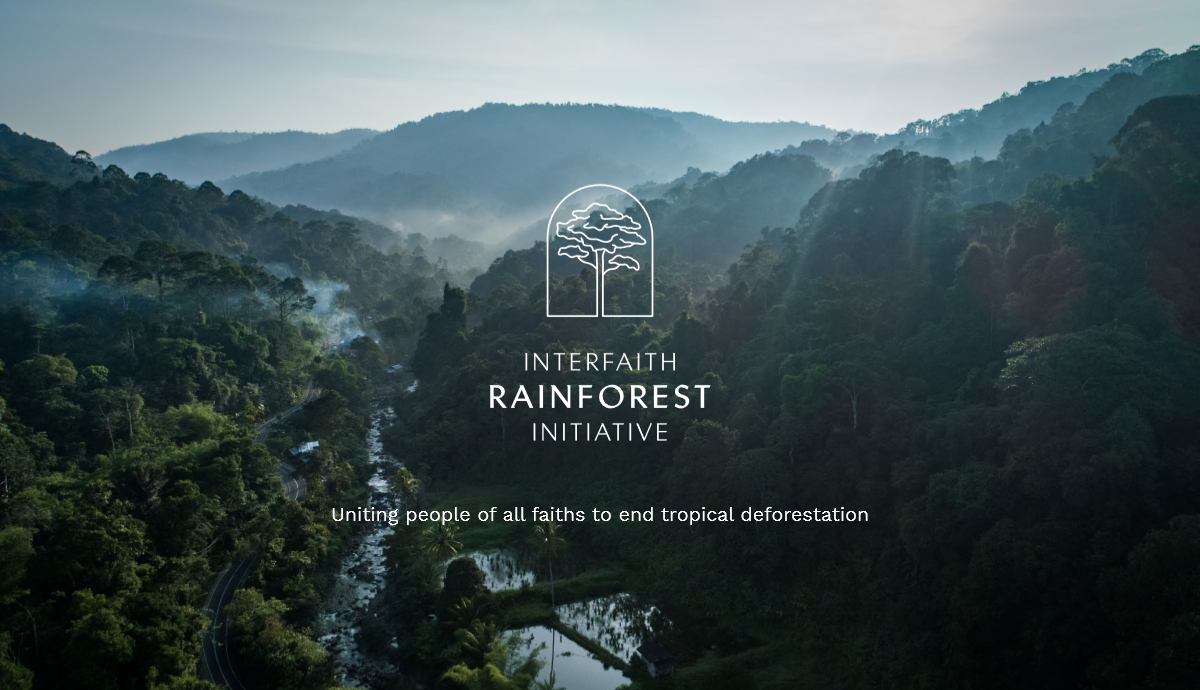
“Faith Over Fear” Campaign to Support Refugees
Engaging more than one million people worldwide, RfP and UNICEF built support for refugees through the joint “Faith Over Fear” media campaign. This global campaign inspired people of all faiths to welcome refugees into their communities by sharing stories about families of faith from around the world who have opened their hearts, homes and communities to refugees. The campaign inspired 3,800 people to publicly commit online to support refugees. By lifting up such examples, RfP advanced more peaceful, just and inclusive societies for refugees across the globe.
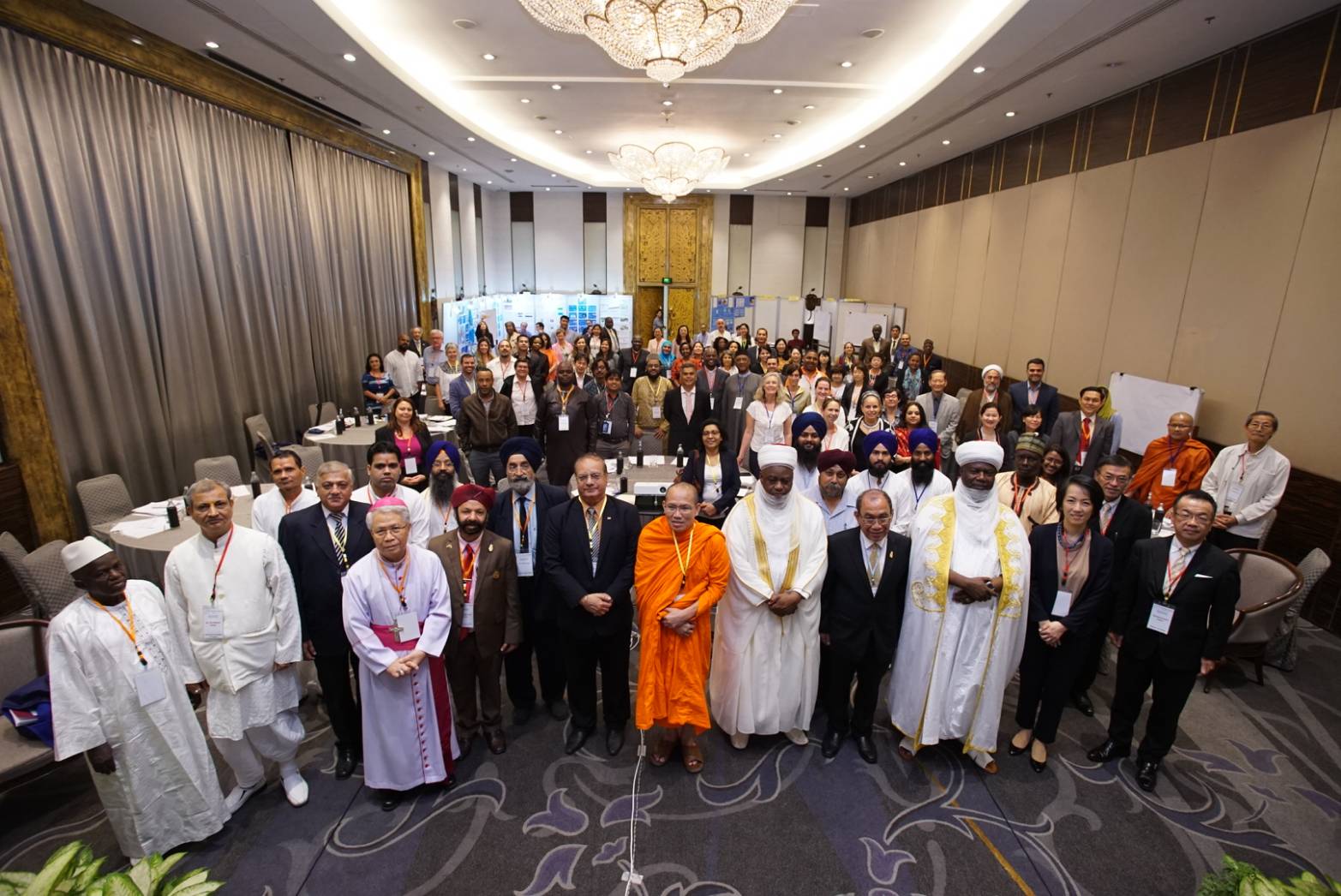
Advancing the Protection of Minorities in Muslim Majority States
Sixty world renowned religious leaders from the Middle East and North Africa participated in RfP’s high level international consultation, “Partnering with Religious Leaders of the Middle East in Advancing the Protection of Minorities in Muslim Majority States” held in Japan.
The Consultation reaffirmed the Marrakesh Declaration, identified religious teachings on protecting minorities, upheld the need to work with state actors and religious communities to promote national legal codes, and advanced cooperation to secure inclusive citizenship for all.

Religious and Scientific Leaders Transform Ethics into Action
RfP is leading the way in interreligious action for the advancement of the Sustainable Development Goals (SDGs) through the Ethics in Action initiative. From 2016-2018, distinguished leaders from the world’s major religious traditions, including many RfP World Council members, philosophers, scholars and scientists were invited to the Vatican to promote dialogue and find consensus to advance transformative action for our common home and the human family.
SDG 16, promoting peaceful, just and inclusive societies was at the core of these convening, but they also delved into shared concerns around other RfP strategic priorities, including fostering global partnerships and nurturing a sustainable environment.
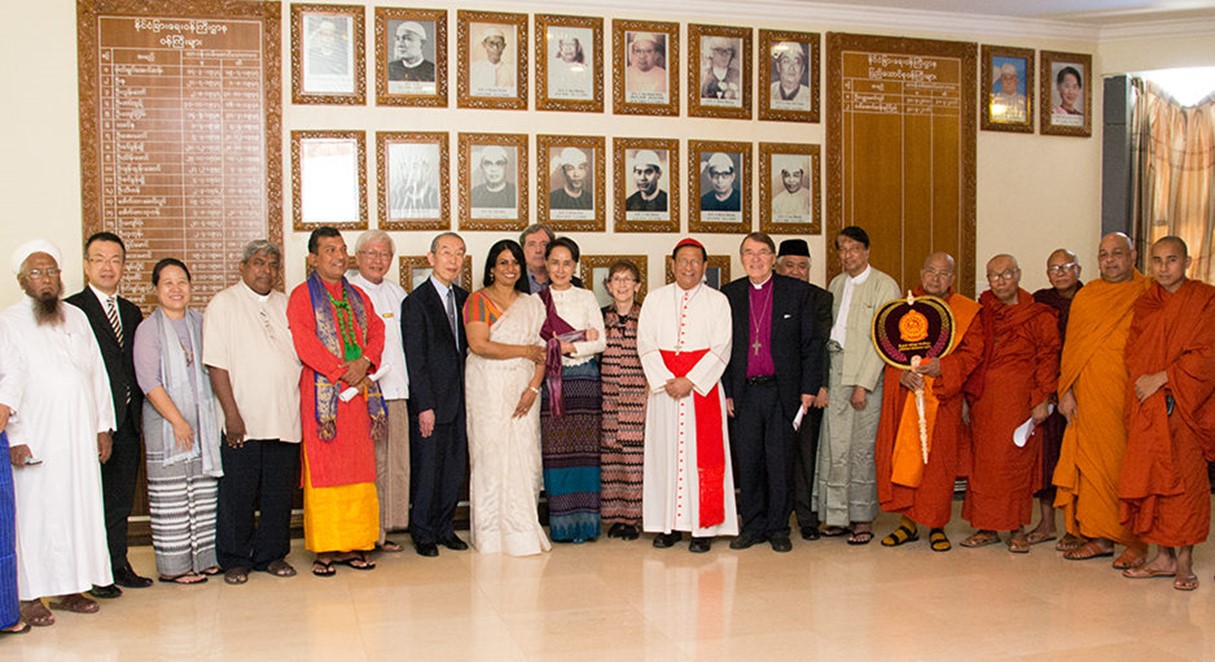
Yogyakarta Statement on Shared Values and Commitments
Religions for Peace was instrumental in organizing diverse religious leaders from 15 countries to co-author the “Yogyakarta Statement,” reaffirming that Islam and Buddhism “are religions of mercy and compassion committed to justice for all humankind.”
Since the statement was released, RfP has been working with Buddhist and Muslim South and Southeast Asian religious leaders to commit to further strengthening common action including preventing violent extremism and addressing humanitarian crises.
Read more from Huffington Post.

Youth Lead Efforts to Overcome Hatred by “Welcoming the Other”
RfP launched its global multi-religious youth campaign, “Welcoming the Other” in Tunisia in 2014. The campaign addressed rising social hostility towards “the other” and radicalization of youth across the globe. Religious youth leaders committed to intensifying their efforts to tackle intolerance, discrimination and other forms of social hostilities, uplift a culture of “Welcoming the Other,” and promote peaceful, just, and inclusive societies.
Religions for Peace continued to support its interreligious councils to conduct Welcoming the Other initiatives that promote social cohesion, environmental stewardship, inclusivity of the marginalized and oppressed, and full participation in society for minority groups.
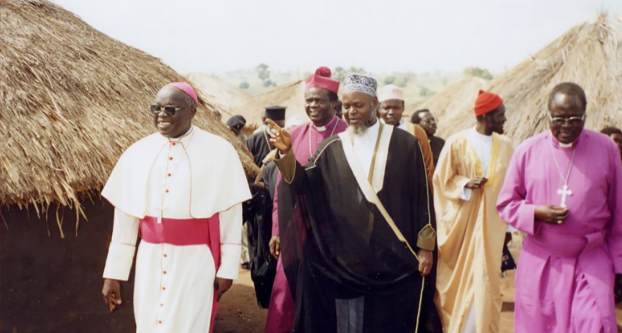
An Interfaith Response to the Ebola Crisis
Religions for Peace’s interreligious councils, the Inter-Religious Council of Liberia (IRCL) and the Inter-Religious Council of Sierra Leone (IRCSL) partnered with UNICEF to lead targeted sensitization activities on Ebola prevention and reporting, provide critical psychosocial support to children and families affected by the crisis, and spread life-saving sanitation messages through sermons and letters from senior religious leaders.
IRCL and IRCSL mobilized awareness-raising campaigns and helped ensure access to counseling services, food items, and treatment for those victimized by the Ebola outbreak. After the crisis, RfP’s IRCs worked to mainstream orphans into society by promoting de-stigmatization radio and dialogue campaigns and advocating for laws to safeguard their rights.

9th World Assembly: Welcoming the Other – Advancing Human Dignity, Citizenship and Shared Well-Being
In a world threatened by violent extremism and rising social hostility, the 9th World Assembly was convened in Vienna, Austria.
Select Outcomes include:
- Organized programs to counter terrorism
- Partnered with UNHCR and UNICEF on refugees
- Prepared for global climate change campaign for Paris Summit
- Ethics in Action in the Vatican for SDGs
- RfP Resource Guide on Nuclear Disarmament was released
- The Vienna Declaration: Welcoming the Other — A Multi-Religious Vision of Peace

Restoring Dignity to End Violence Against Women and Girls
Religions for Peace advanced gender equality through its “Restoring Dignity” campaign, a global initiative dedicated to engaging faith-based organizations, religious leaders, communities and individuals of faith for common action to end violence against women and girls.
The toolkit was designed in collaboration with diverse, global religious leaders to be used by all those responding to the moral responsibility of preventing violence against women and girls and providing care and support to all who have suffered and endured it. The toolkit offers religious leaders and communities the tools to carry out awareness and act together in partnership within and across faiths as powerful agents of prevention, protection and support for ending all forms of violence against women and girls.
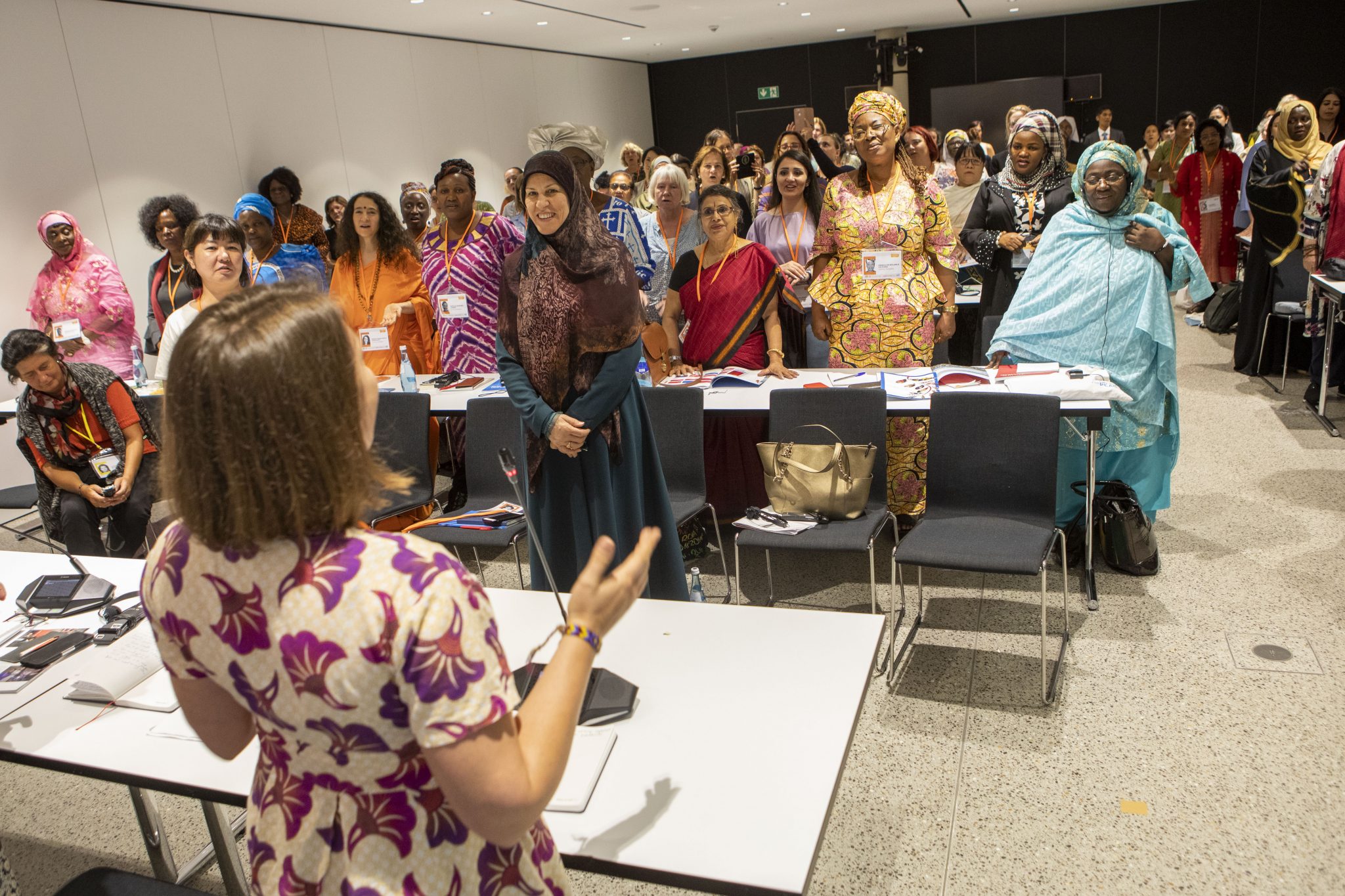
From Commitment to Action: What Religious Communities can do to Eliminate Violence against Children.
Religions for Peace and UNICEF released From Commitment to Action: What Religious Communities can do to Eliminate Violence against Children. The joint guide, produced with input from religious actors and child protection specialists, aims to help religious communities harness their spiritual, moral and social strengths to prevent, respond to and eliminate violence against children.
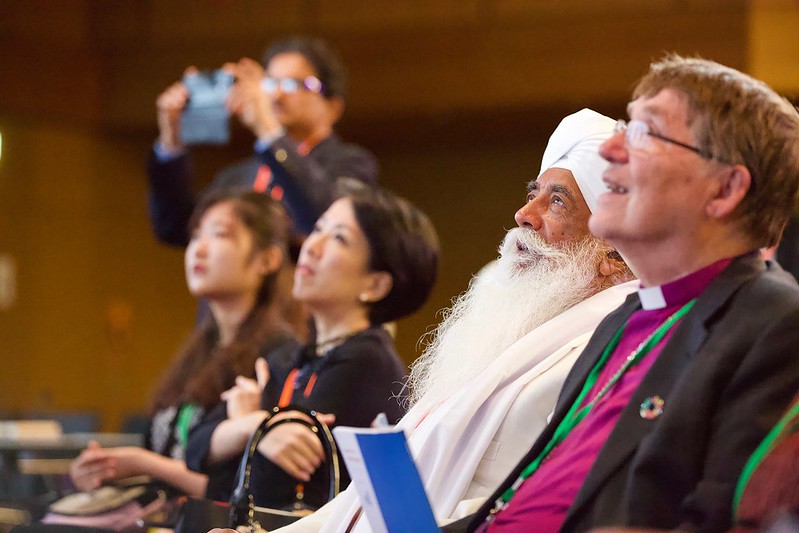
Arms Down! Campaign for Shared Security
Religions for Peace’s Global Interfaith Youth Network spearheaded the first youth-led global interfaith campaign on nuclear disarmament, called “Arms Down!” On 4 October 2010, the interfaith youth leaders delivered a petition signed by 20 million people to the United Nations Secretary-General’s High Representative for Disarmament, demonstrating broad, representative support for the campaign goal on a global stage: a pledge from all governments to advance nuclear disarmament and reduce their military budgets by 10% and further re-allocate those funds toward development.
Under this campaign, the youth mobilised more than 10,000 religious and civil society institutions in over 120 countries and implemented more than 100 multi-religious trainings, consultations, and advocacy actions across the globe. Arms Down! generated support from Heads of State, the Mayors of Hiroshima and Nagasaki, 200 parliamentarians, and senior religious leaders.
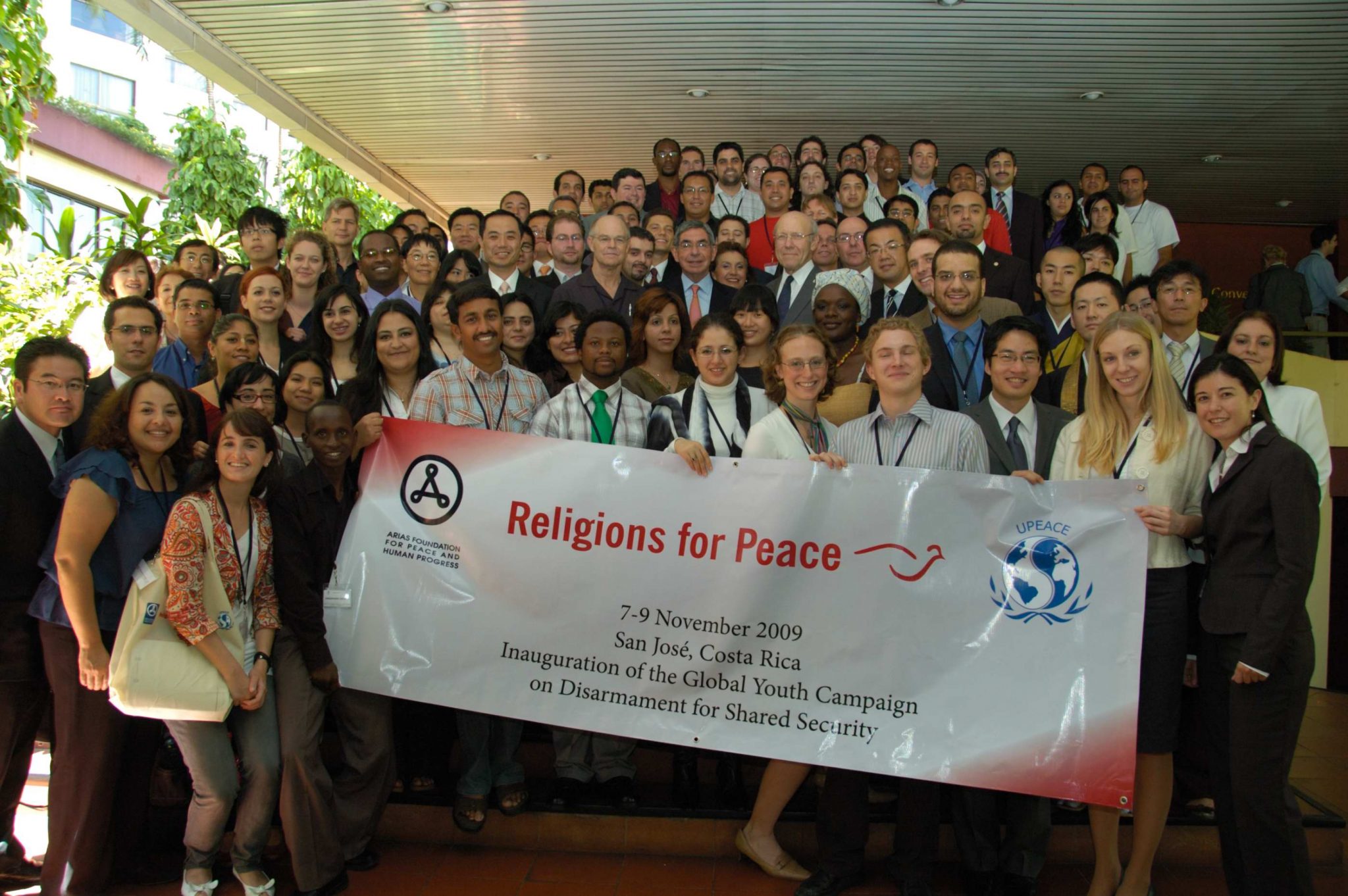
Middle East & North Africa Regional Interreligious Council Founded
Religions for Peace forges a multi-religious consensus and launches the Middle East & North Africa (MENA) Interreligious Council. Thirty Muslim, Christian, and Jewish representatives of religious communities and institutions from 20 countries convened at the Library of Alexandria. These representatives committed to developing the foundation for effective dialogue, promoting interreligious education, and carrying out solidarity actions to promote reconciliation. These original commitments remain priority actions in RfP’s 2020-2025 Strategic Plan.
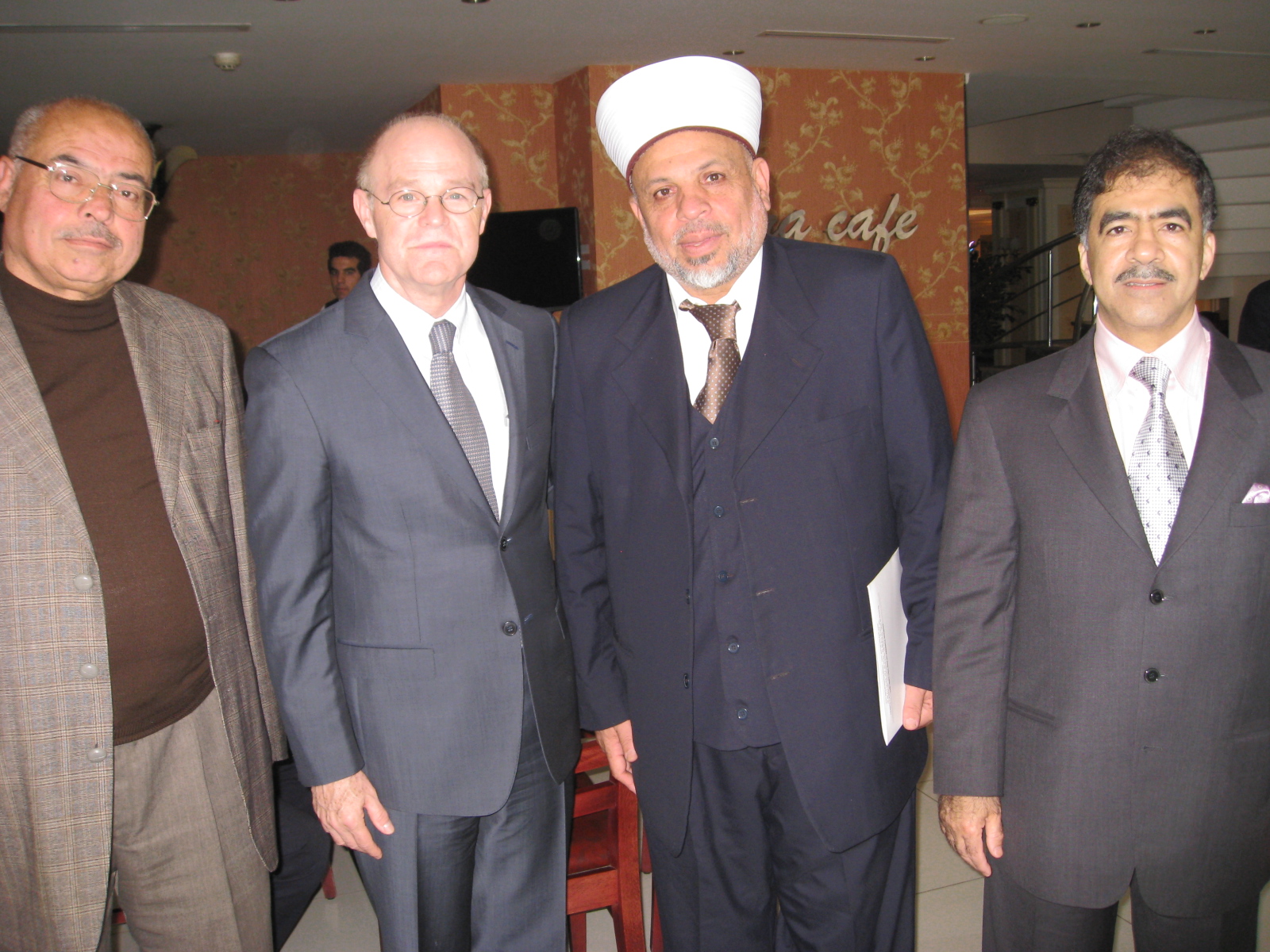
Banning Cluster Munitions though Global, Multi-religious Advocacy and Action
Cluster munitions killed and wounded innocent people, caused untold suffering, loss and hardship for thousands in more than 20 countries for over 40 years. These weapons hamper post-conflict rebuilding and rehabilitation and clearance absorb funds for other urgent humanitarian needs.
Religions for Peace garnered broad multi-religious support to ban cluster munitions by creating resources for religious leaders and communities to take action through advocacy & media engagement; education and awareness; and survivor care.
In May 2008, 107 governments met in Dublin, Ireland to negotiate an international treaty to ban cluster munitions. All participating governments unanimously adopted a new treaty— the Convention on Cluster Munitions (CCM) —that bans cluster munitions, and obliges states to clear contaminated land, and provide assistance to survivors and affected communities. Over 160 senior religious leaders from Religions for Peace committed to advance the ban at the international treaty signing in Oslo, Norway.
Access Religions for Peace’s Resource Guide on Cluster Munitions
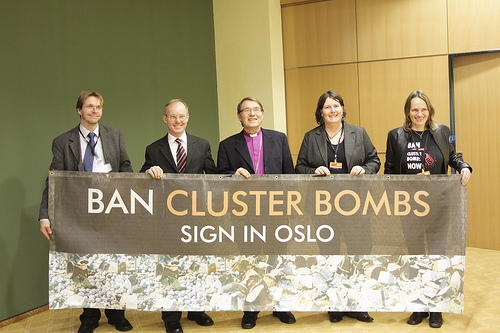
International Multi-religious Summit in Sri Lanka
As violent conflict continued to rage in Jaffna, Sri Lanka, Religions for Peace gathered a global delegation of Buddhist, Christian, Muslim, and Hindu religious leaders to visit the country and make a strong, global statement supporting multi-religious cooperation for peace, reconciliation, and humanitarian assistance on the ground.
Religions for Peace’s international multi-religious delegation and Sri Lanka Council of Religions for Peace convened stakeholders, including President H.E. Mahinda Rajapaksa, to collaborate with the government, opposition parties, and the Liberation Tigers of Tamil Eelam (LTTE) in addressing the humanitarian crisis.
The Sri Lanka Council of Religions for Peace is a sustainable multi-religious mechanism and has since built local interreligious councils in 15 districts across the country to enhance inter-ethnic language education for youth and to build multi-ethnic schools in areas affected by civil war. They have undertaken projects mobilising religious leaders for the protection of holy sites and promoting interfaith and inter-ethnic tolerance through creative “Welcoming the Other” initiatives.
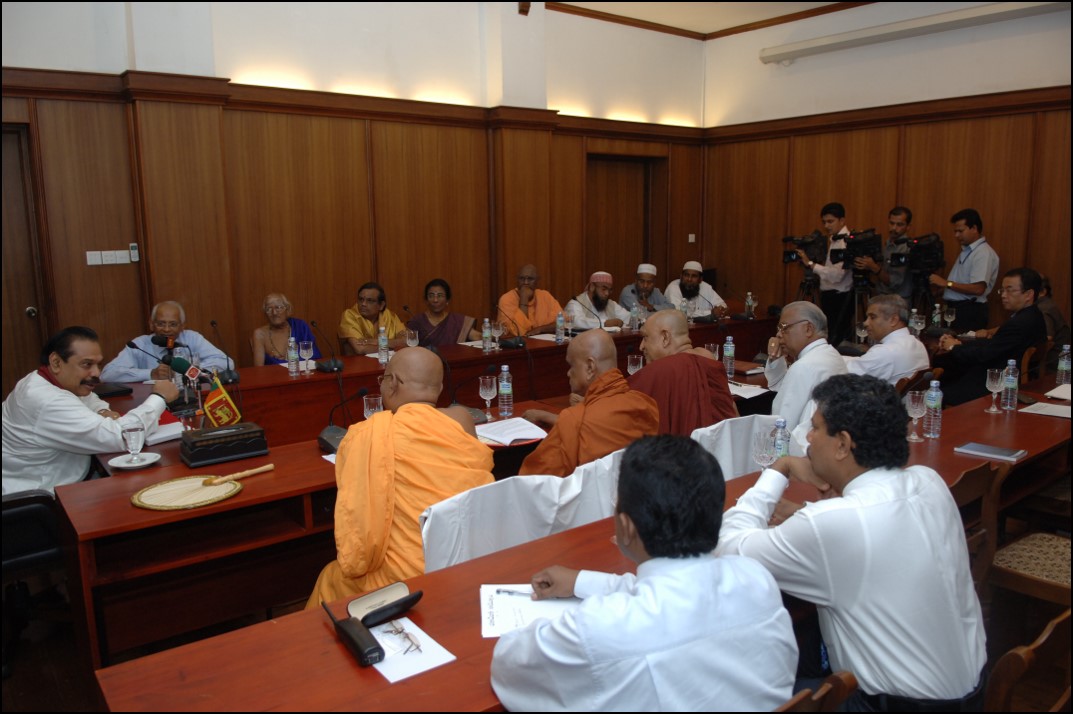
Kyoto 8th World Assembly
The Eighth Assembly convened 800 religious representatives from 100 countries to develop concrete strategies for transforming conflict and advancing development.
Religions for Peace, already a long-time partner with the United Nations, launched a Faith-in-Action Toolkit to support religious communities in their work advancing UN Millennium Development Goals and in raising awareness, advocating, training, and conducting outreach.
In its opening pages, H.E. Ban Ki-moon, then Secretary General of the UN, noted what Religions for Peace has made clear through its 50-year legacy: “People of faith are on the front lines of efforts to meet the needs of the world’s poorest and bridge chasms of ignorance and misunderstanding. Religious groups can also be powerful advocates in mobilizing political leaders and the public at large.”
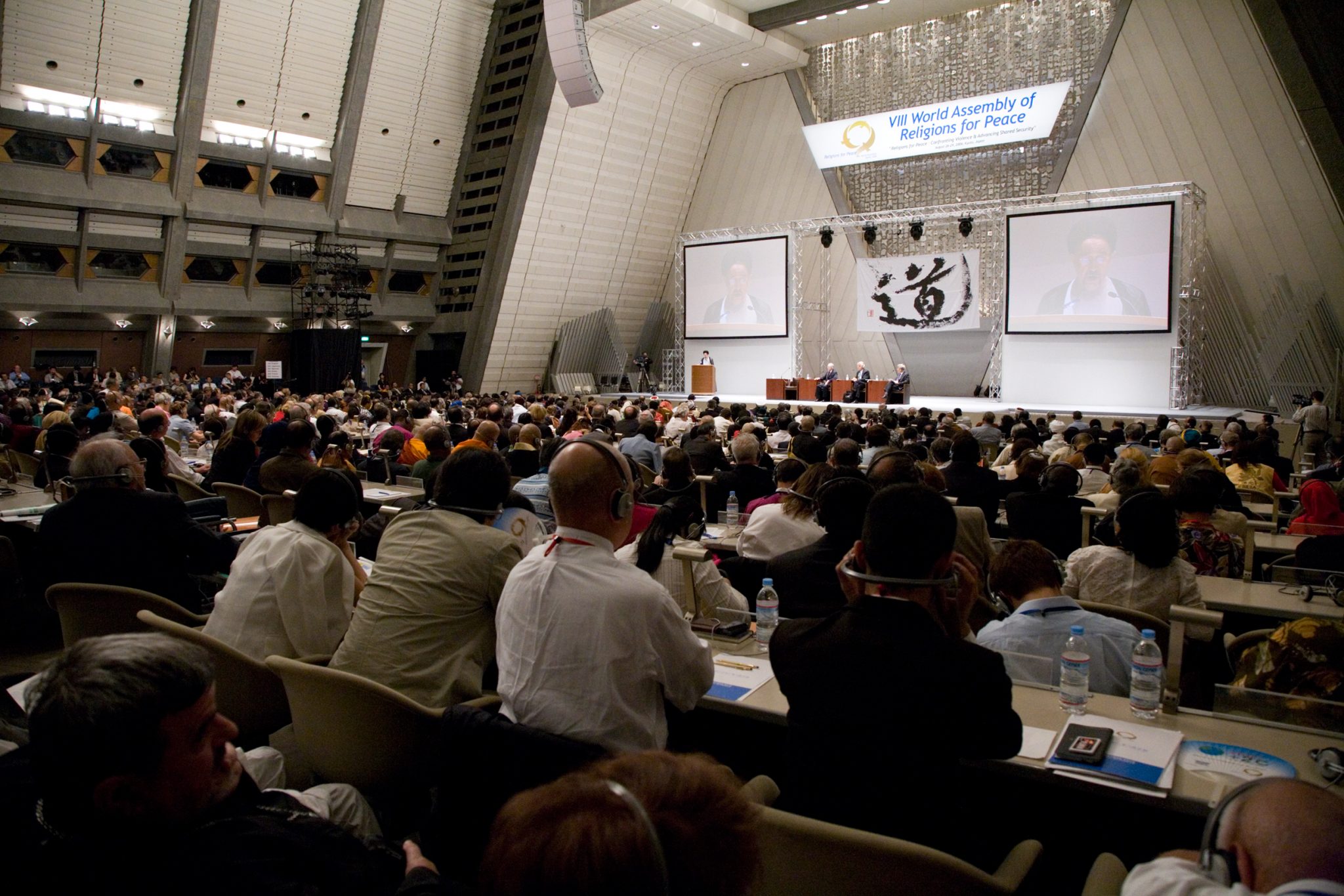
Law of Religious Freedom Drafted by Religions for Peace’s Interreligious Council in Bosnia-Herzegovina Adopted in Parliament
The Bosnian parliament adopts the Law of Religious Freedom drafted by Religions for Peace’s Interreligious Council of Bosnia-Herzegovina (IRC-BiH), which fosters openness and acceptance of the religious and ethnic diversity of the country.
In 2010, IRC-BiH partnered with the Oslo Center for Peace and Human Rights to launch a field project advancing freedom of thought, conscious and religion, and challenging religious and ethnic discrimination through the systematic reporting of attacks; joint visits of religious leaders to holy sites; multi-religious public condemnations of any act of violence; and the active engagement of stakeholders such as the police, media, and local political leaders. The project has allowed IRC-BiH to be widely recognised by governments and NGOs as a nonpartisan actor advancing peace and inter-religious/inter-ethnic tolerance in the county.
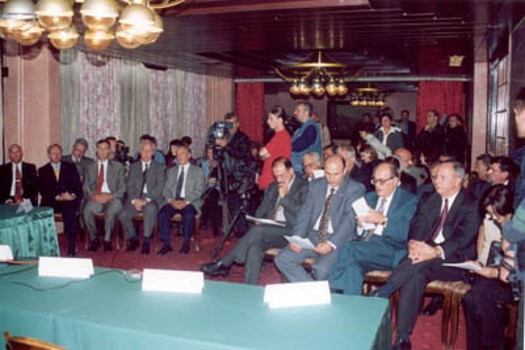
Religions for Peace Latin America & the Caribbean Regional Interreligious Council Founded
Senior religious leaders from 14 Latin American and Caribbean countries committed to multi-religious collaboration and action in the region through the founding of Religions for Peace Latin America and the Caribbean. The body was launched to serve religious communities throughout Latin America & the Caribbean in promoting justice, peace, and human rights. This work continues to this day.
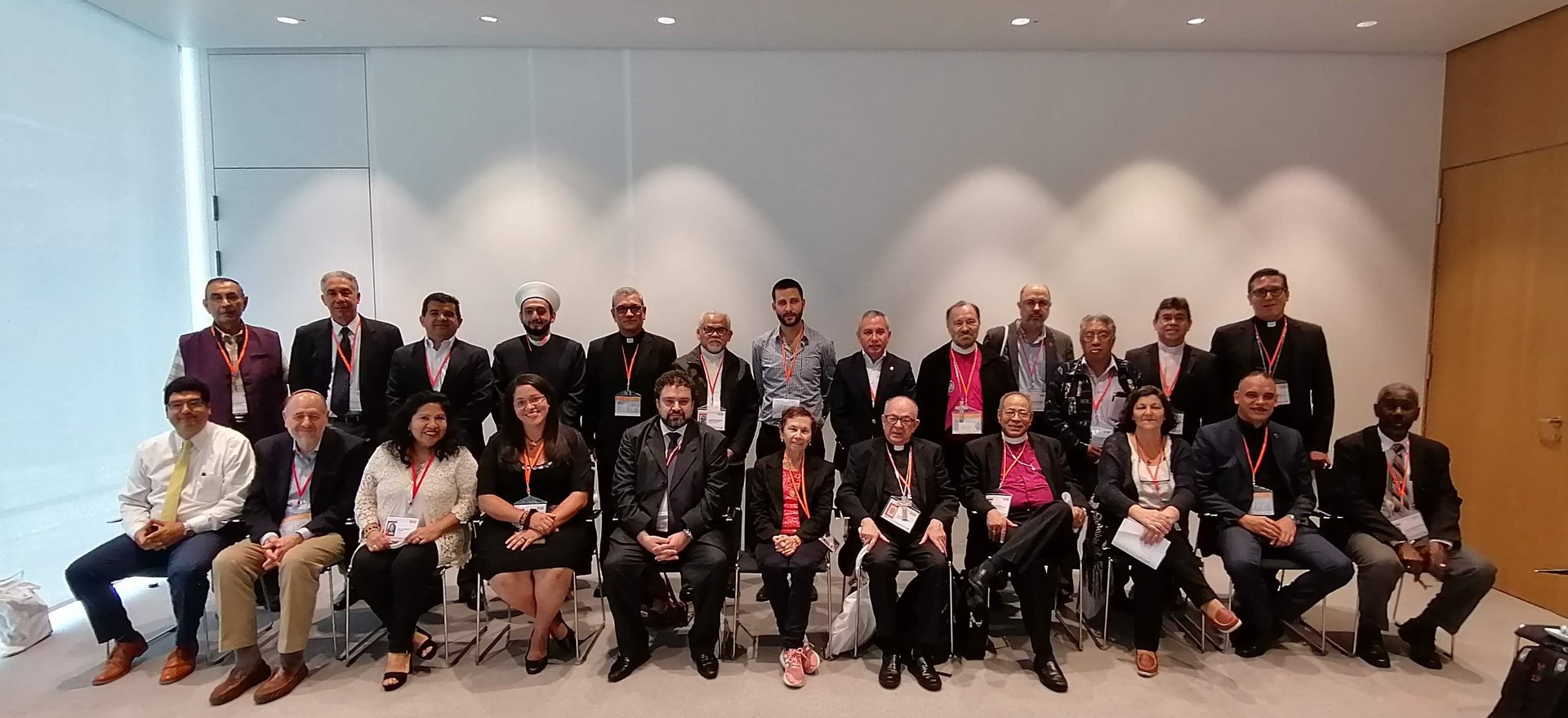
African Regional Interreligious Council Founded: African Council of Religious Leaders
President Obasanjo of Nigeria inaugurates Religions for Peace’s regional interreligious council in Africa – the African Council of Religious Leaders (ACRL-RfP) in Abuja, Nigeria. The IRC becomes the first multi-religious structure on the continent, comprised of senior religious leaders from major religious institutions and pan-African coordinating bodies.
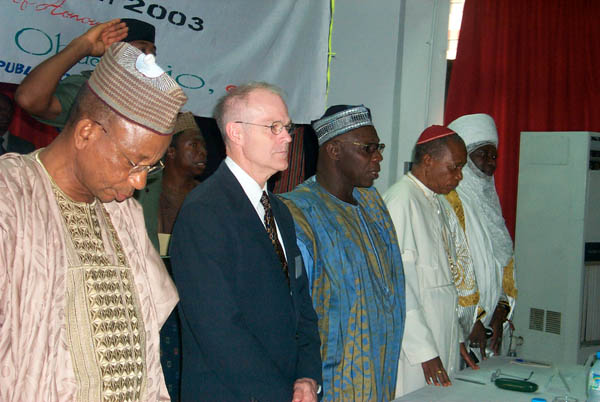
European Regional Interreligious Council Founded: European Council of Religious Leaders
Religions for Peace establishes the first pan-European multi-religious leadership platform – its regional Interreligious Council, the European Council of Religious Leaders (ECRL – RfP)
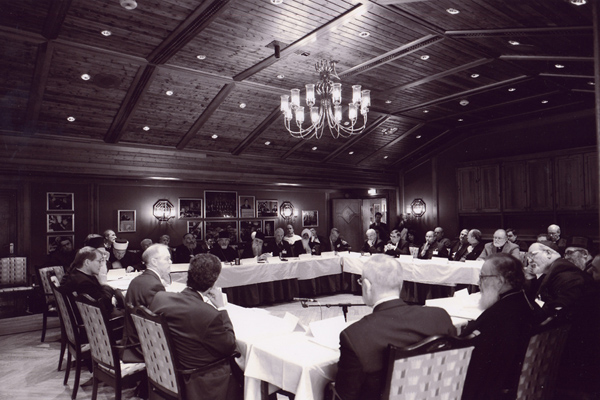
Religions for Peace in Iraq Equipped for Urgent Medical Care and Convenes Iraqi religious leaders Multi-religious Collaboration
Weeks after the fall of Baghdad, Religions for Peace convened diverse Iraqi religious leaders in Amman, Jordan. Many of the religious entities were also providing necessary humanitarian relief to communities after the government ceased functioning. Religions for Peace was the only international faith-based entity convening all sectors of Iraqi religious leaders and institutions in the wake of the Iraqi transition. RfP continued this direct multi-religious convening and engagement for a total of nine consultations throughout the war.
In 2005, per its signature model of regional interreligious collaboration, a sister RfP entity, Religions for Peace Korea, launched a multi-religious project providing medical assistance to war-wounded Iraqi children. Twenty-five Iraqi doctors received medical training in South Korea and 50 Iraqi children were treated with much-needed advanced surgical care.
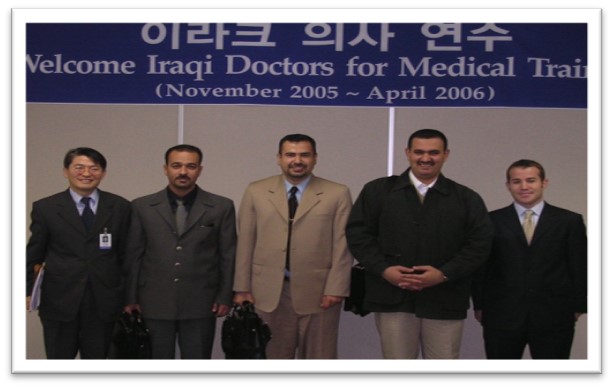
First Coordinated Multi-religious Action for Millions of Orphans and Vulnerable Children Impacted by HIV/AIDS
Marking a historic start of faith-based and multi-religious engagement on HIV/AIDS in Africa, Religions for Peace convened more than 200 religious leaders, the UN Special Envoy for HIV/AIDS, and the Executive Director of UNICEF for the African Religious Leaders Assembly on Children and HIV/AIDS.
Religions for Peace and UNICEF conducted a ground-breaking study entitled “Responses of Faith-Based Organisations to Orphans and Vulnerable Children,” which documents the quantity, quality, and scale of efforts of faith-based organisations in Africa to care for children affected by HIV/AIDS.
Religions for Peace and key partners received a $10 million grant from the Bill and Melinda Gates Foundation to launch the “Hope for African Children Initiative,” assisting 100,000 children impacted by the AIDS pandemic. RfP’s Interreligious Council in Africa (African Council of Religious Leaders) built the capacity of nine national Interreligious Councils to implement projects on the ground.
These IRCs were able to secure greater access to treatment for marginalised communities, advocate to governments and policy makers on behalf of people living with HIV/AIDS, reduce stigma, support orphans and vulnerable children, and champion cost-effective and sustainable solutions through multi-religious engagement. The IRCs built during this moment of crisis are still actively engaged in issues affecting their respective countries and communities.
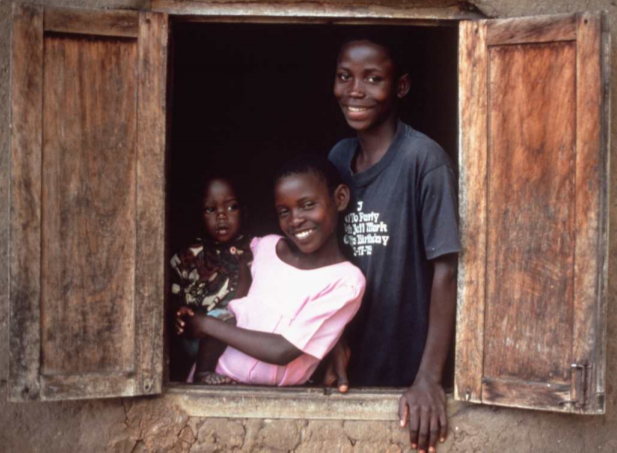
Overcoming Fear, Division & Despair After 9/11
In a city overshadowed by fear, division, and despair five short weeks after the attacks of 11 September 2001, Religions for Peace convened 130 diverse religious leaders from over 30 countries with UN ambassadors to send a global multi-religious message of hope and healing during an international prayer service at the Islamic Centre of New York.
In response to the deteriorating humanitarian conditions in Afghanistan, then UN Secretary-General, H.E. Kofi Annan, called for humanitarian assistance for Afghan refugees. In response, Religions for Peace raised approximately USD $1 million for refugee relief activities, and on 22 April 2002, a delegation of senior leaders from Religions for Peace delivered USD $500,000 to H.E. Kofi Annan, a momentous occasion marking a continued, successful partnership between the United Nations and Religions for Peace.
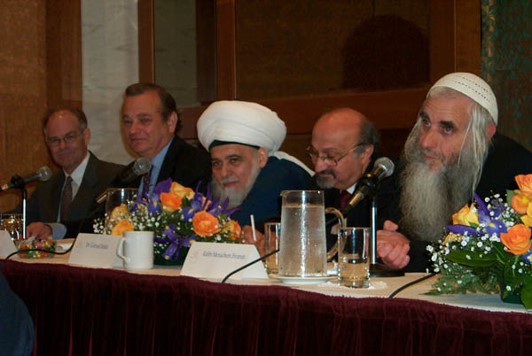
Religions for Peace launches its Global Women of Faith Network
Religions for Peace launched the Global Women of Faith Network and created the first edition of a directory listing more than 350 women of faith organisations. Regional and national Women of Faith Networks were later established as critical components of RfP’s regional and national Interreligious Councils.
These networks supported information sharing and exchange and facilitated joint programmes among women’s groups through the decades including implementing “Restoring Dignity” projects, providing psychosocial support to victims of conflict, countering violent extremism and securing the release of child hostages. Their leadership of the global movement continues to this day.
Access the Multi-religious Training Manual: Women of Faith Transforming Conflict
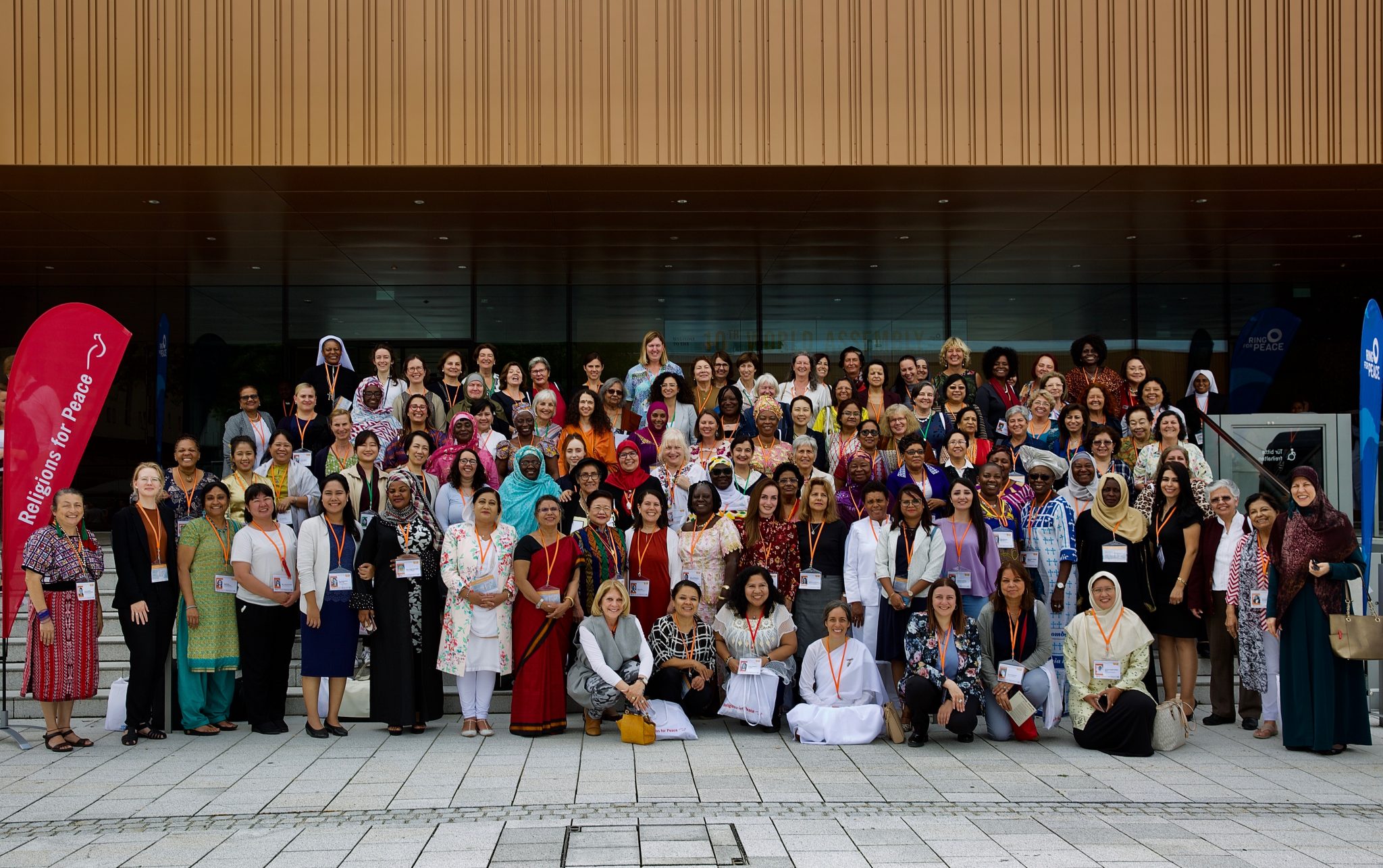
1,200 Diverse Religious Leaders from 70 Countries join the 7th World Assembly in Jordan
Religions for Peace convened its 7th World Assembly – the first assembly hosted by a Muslim-majority and Middle Eastern state – entitled “Action for Common Living” in Amman, Jordan. Among the delegates were Sheikh Tantawi of Al-Azhar of Egypt; the Archbishop of Canterbury, Dr. George Carey; His Royal Highness Prince Hassan; President Ahmad Tejan Kabbah of Sierra Leone; President Abdurrahman Wahid of Indonesia; and His Eminence Cardinal Arinze of the Vatican.
At the opening of the event, His Majesty King Abdullah II noted that since its inception in 1970, Religions for Peace has been committed to “respecting religious differences while endeavouring at the same time to develop cooperation among religions for the sake of peace.”
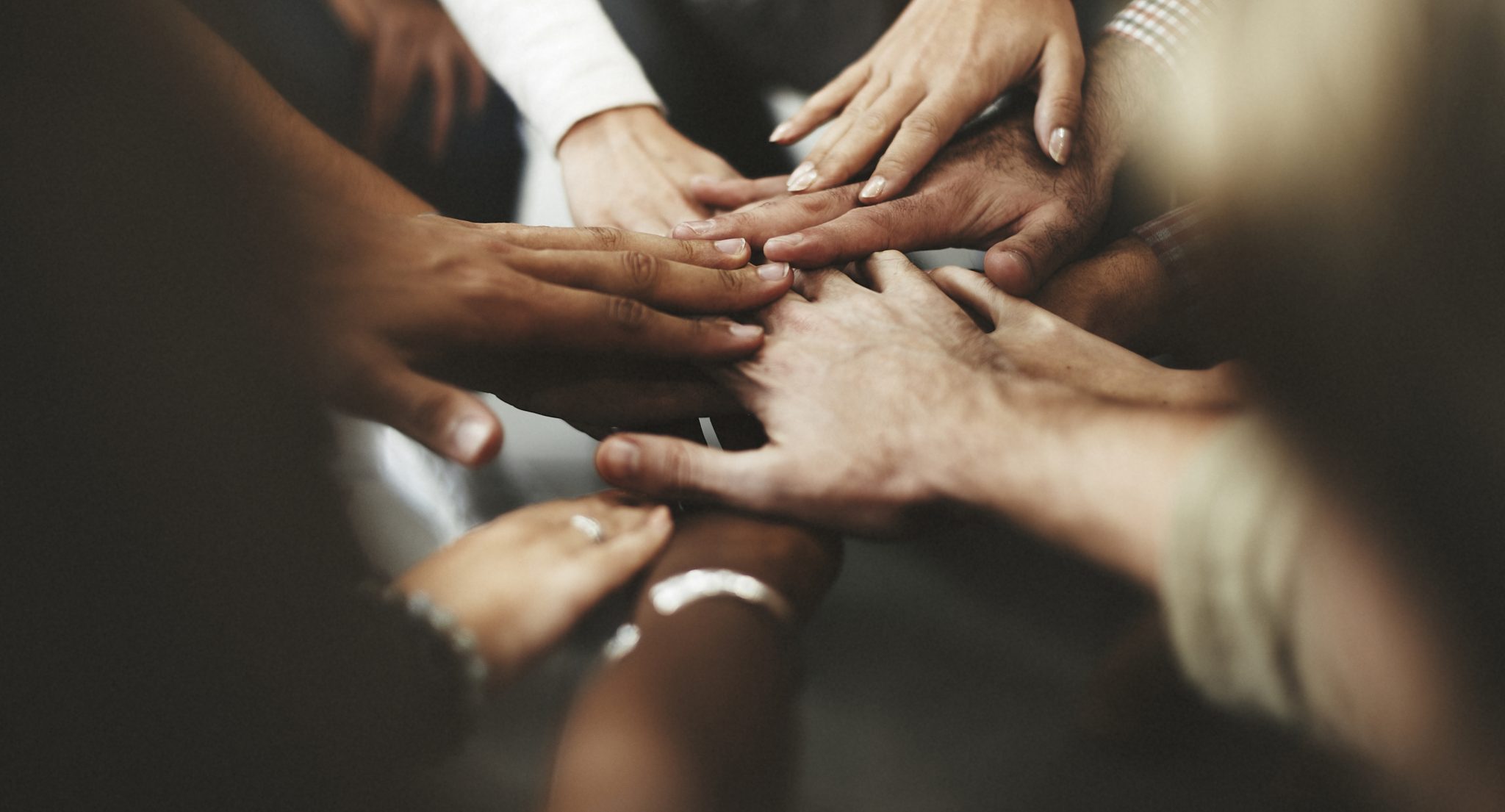
Interreligious Council in Bosnia and Herzegovina Established to Facilitate Dialogue and Reconciliation
A year and a half after war raged in Bosnia and Herzegovina, just after the signing of the Dayton Peace Agreement, leaders of the Muslim, Orthodox Christian, Catholic, and Jewish communities requested the support of Religions for Peace to establish the Interreligious Council of Bosnia and Herzegovina (IRC-BiH) to actualize the peace agreement and facilitate reconciliation in the country. In 1997, IRC-BiH opened its doors with seven full-time staff to launch numerous inter-religious projects fostering trust among different religious and ethnic groups.
In a context where the influence of religious communities is undeniable, IRC-BiH becomes a trademark for interreligious cooperation in the region.
IRC-BiH has been able to respond effectively to the changing nature of interreligious tension in the years following its establishment, by drafting the Law of Religious Freedom adopted by the Bosnian parliament in 2004 and taking a multi-stakeholder approach to the protection of holy sites from 2010 to the present day. The project has allowed IRC-BiH to be widely recognised by governments and NGOs as a nonpartisan actor advancing peace and inter-religious/inter-ethnic tolerance in the county.
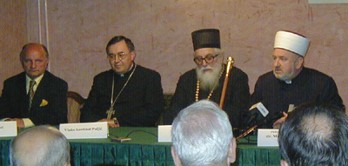
Pope John Paul II Hosts 6th World Assembly in the Wake of Genocide, Conflict, & Suffering
In the wake of armed conflict, genocide, and human suffering throughout the last half of the twentieth century, Religions for Peace convened its 6th World Assembly under the theme “Healing the World.”
In the Vatican’s Synod Hall where Pope John Paul II hosted 850 delegates from 63 countries, Pope John Paul II stressed the importance of RfP’s commitment to peace: “As you reflect on the role of religion in healing the world, you will be examining some of the major manifestations of human suffering… It is our common task and duty to make better known the relation between religion and peace.”
The Assembly elected Dr. William F. Vendley as the Secretary General of Religions for Peace.
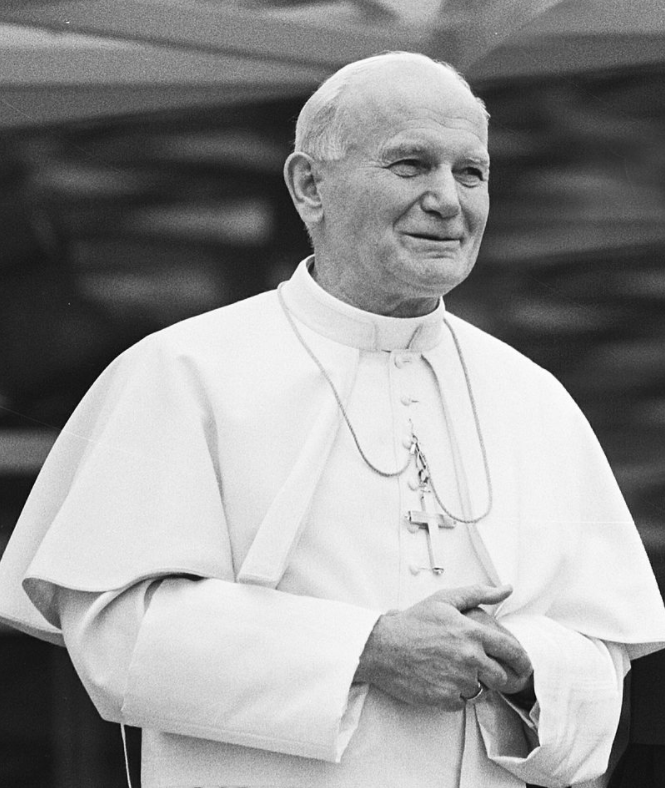
Interreligious Council in Sierra Leone Facilitates Peace
From the devastation of the bloody civil war in Sierra Leone from 1991 to 2002, Muslim and Christian leaders form Religions for Peace’s Interreligious Council of Sierra Leone (IRCSL) to engage in conflict resolution and mediate between the government and rebel fighters. At the request of the Government of Sierra Leone and rebel groups, IRCSL provided strategic assistance in formal peace talks which led to the release of fifty child captives by “Interfaith Mothers” and the Lome Peace Accord.
During its 30 years of interreligious collaboration for peace, IRCSL has forged a unique reputation among religious, government, and civil society leaders, positioning them as so-called “moral guarantors of peace.” IRCSL continues to play an objective, third-party role in government councils and has expanded its reach to include hundreds of religious leaders today acting to promote peace among Sierra Leone’s populations.
Learn more: Inter‐Religious Council of Sierra Leone as Peace Facilitator in Post‐1991 Sierra Leone by Hilary Anne Hurd
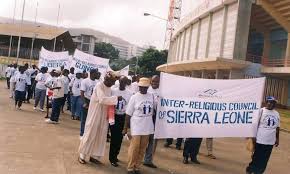
Interreligious Council of Liberia Lays Groundwork for Peace
The Religions for Peace Interreligious Council of Liberia (RfP-IRCL) was established in 1990 during the devastating First Liberian Civil War. Muslim and Christian religious leaders created a platform for religions to work together to bring peace through conflict mediation. For its role in the Liberian Peace initiative from 1990, RfP-IRCL won the Desmond Tutu Peace Award.
RfP-IRCL’s mediation during the Liberian crisis initiated a framework forming the basis for the Economic Community of West African States (ECOWAS) Peace Plan for Liberia, including a ceasefire, roundtable conference, peacekeeping force and security. The plan lead to general elections in 1997. RfP-IRCL also engaged the UN platform for Liberia called International Contact Group on Liberia that facilitated the final phase of the Liberian peace process in 2003.
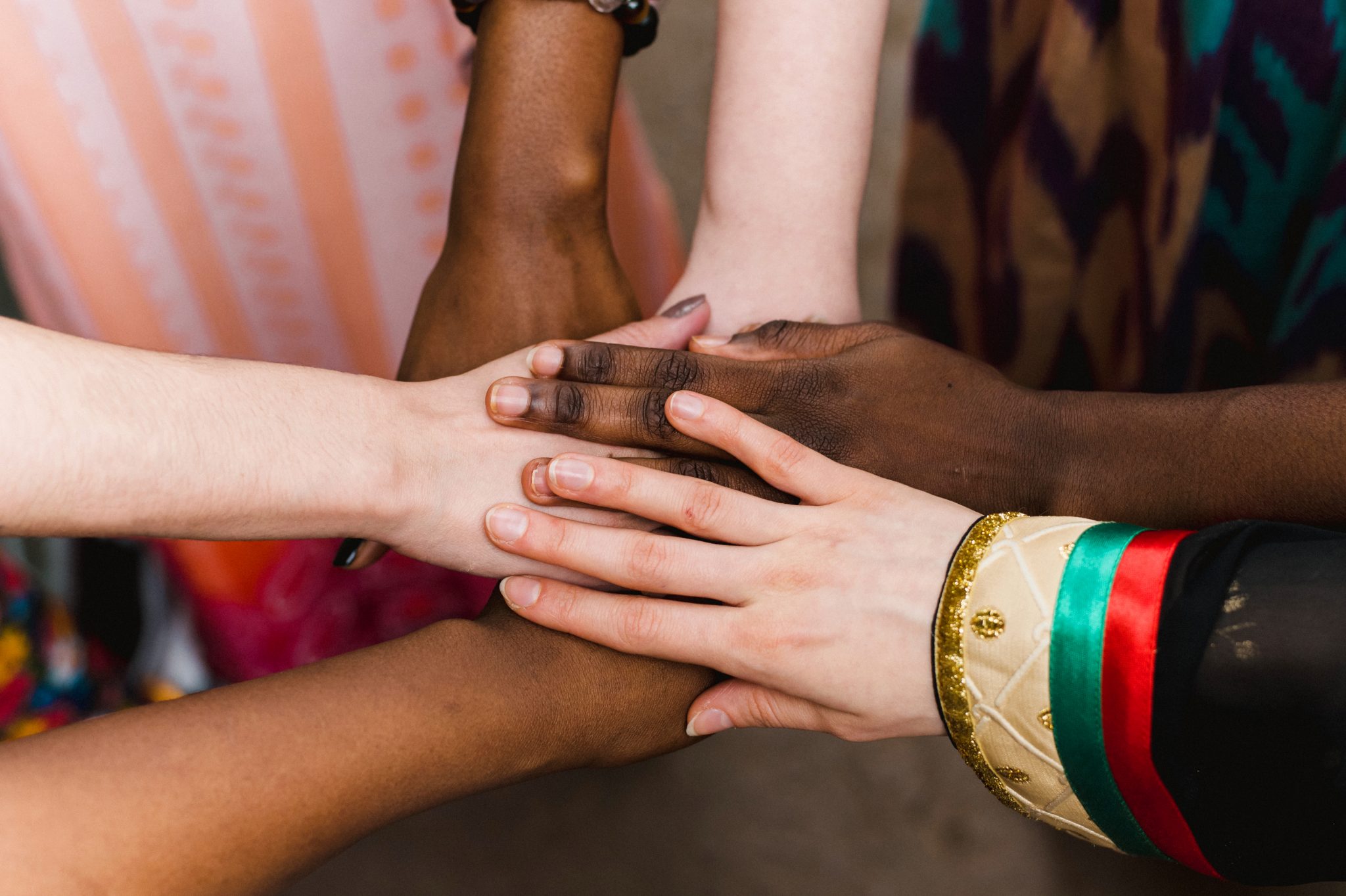
Multi-Religious Engagement Transforming Children's Rights
Religions for Peace and UNICEF sponsored the “Spiritual Summit for the World’s Children,” in Princeton, New Jersey—the first of many subsequent programmes undertaken in support of the UN World Summit for Children.
This summit laid the foundation for multi-religious engagement the adoption of the Convention on the Rights of Child – the most widely ratified human rights treaty in history and has helped transform children’s lives around the world.
